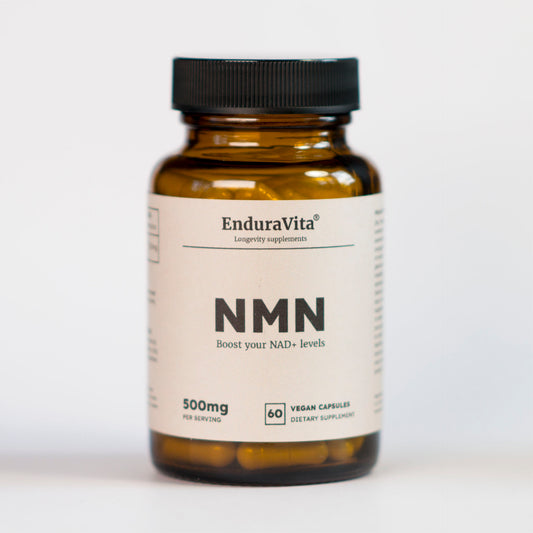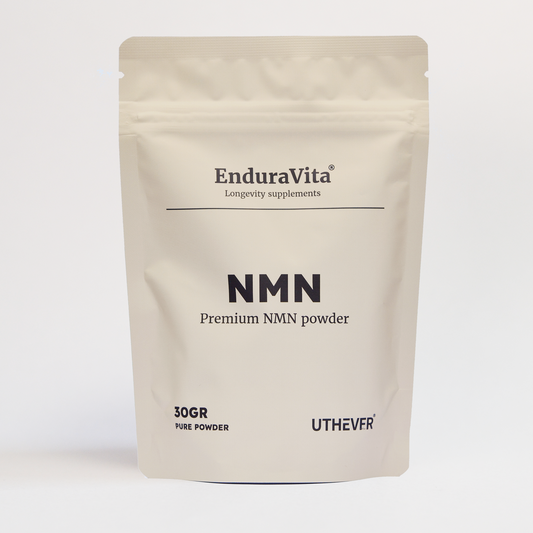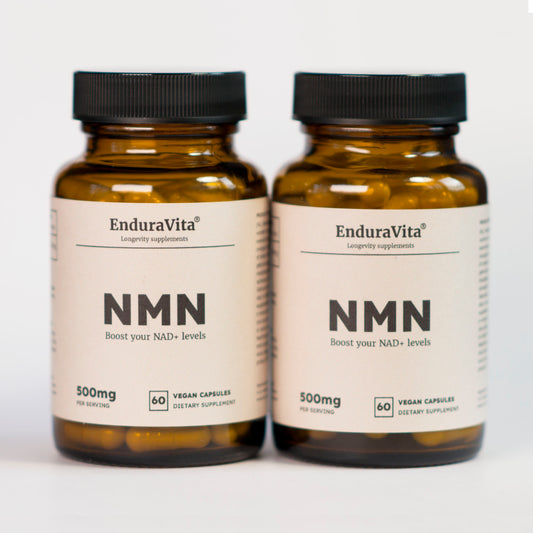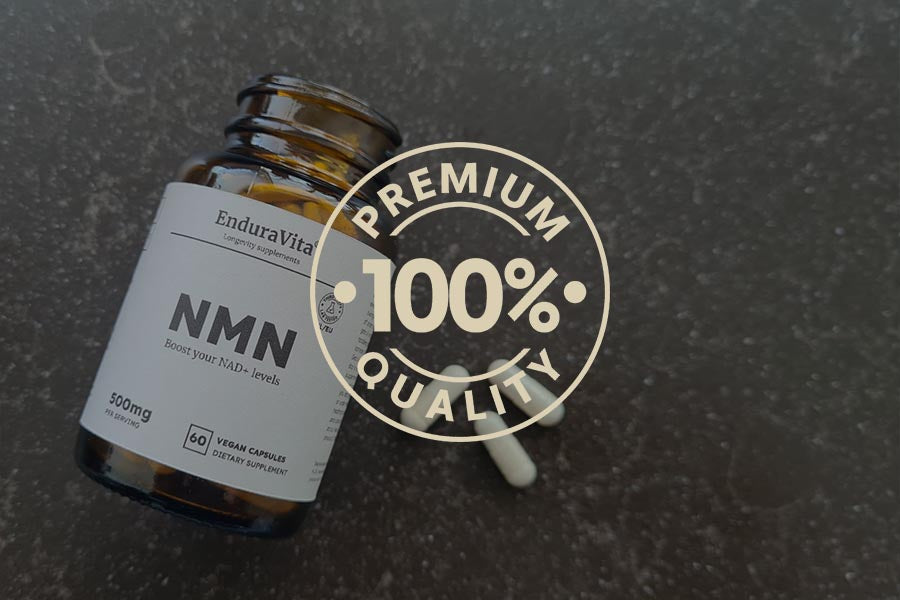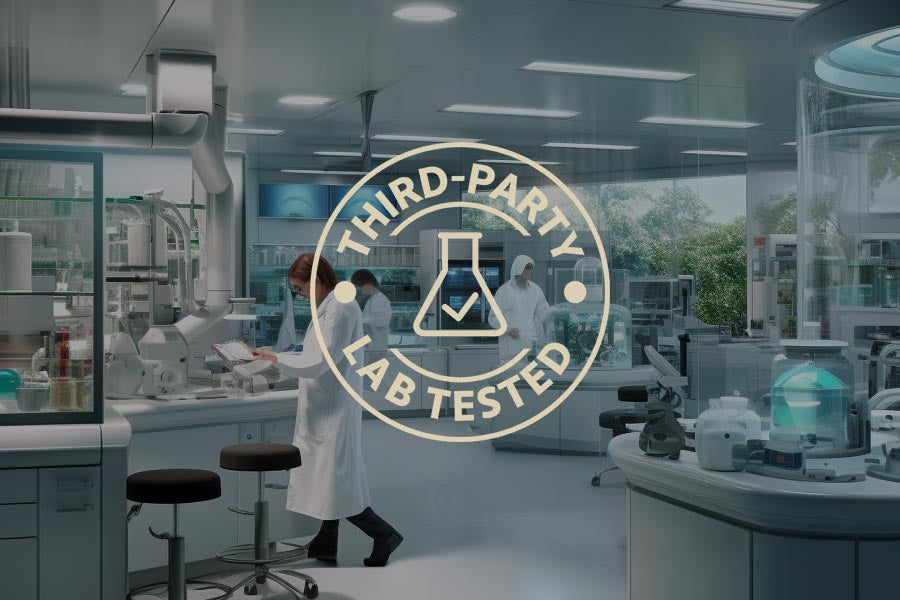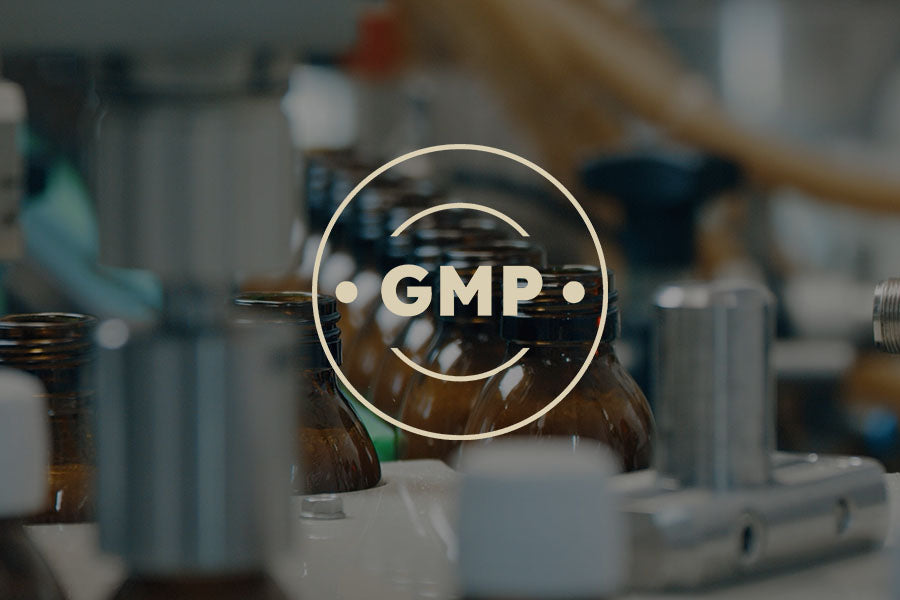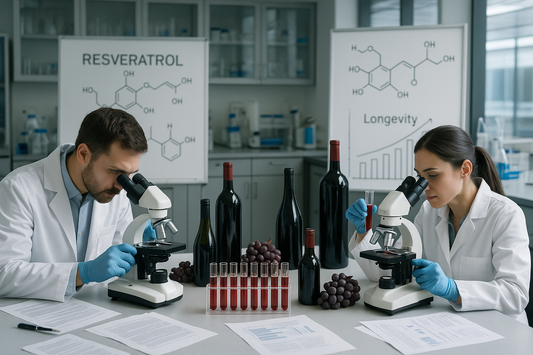
What is Longevity Hacking?

The term "Longevity hacking" may sound futuristic, but more and more people are actively engaged in it. It falls under the larger concept of biohacking, where lifestyle and science are combined to support the body. Think of nutrition, sleep, exercise, and supplements. In Longevity hacking, the focus is on slowing down biological aging. In this article, you will read about six longevity hacks that, according to research, are associated with better health and possibly also with a longer lifespan.
1. Longevity Hack - Nutrition
Nutrition directly affects aging. The microbiome, the community of bacteria in the gut, is strongly connected to the immune system. A disruption can increase the risk of inflammation and chronic diseases. A leaky gut, or "leaky gut," is also associated with systemic inflammation².
Foods often associated with a healthy aging process:
Fiber-rich foods such as oats, beans, and vegetables
Antioxidants from blueberries, green tea, and spinach
Turmeric with black pepper for a possible anti-inflammatory effect
Omega 3 fatty acids from oily fish and flaxseed
Low added sugars and stable blood sugar levels
Intermittent fasting
Intermittent fasting is a way of eating where you consciously take breaks between meals. A well-known form is the 16 8 method, where you fast for sixteen hours and eat within an eight-hour period. For many people, this means, for example, having dinner at 7:00 PM and then not eating again until around 11:00 AM the next morning.
In a recent review from 2024, multiple studies on both animals and humans were examined. The researchers found that fasting in various forms is associated with slowing down aging and reducing disease risks. These effects were observed in mice, rats, and human participants in short-term interventions¹.
Want to start yourself? Begin with twelve hours of fasting and build it up gradually. Choose a fixed eating window that fits your daily rhythm and make sure you keep drinking enough. During eating moments, it's important to eat nutritious and varied foods.
Good fats vs. sugars
Healthy fats provide energy and support important functions such as cell building and hormone production. Unsaturated fats, like those in avocado, nuts, olive oil, and fatty fish, are often associated in research with better heart health². Saturated fats, present in, for example, full-fat dairy and red meat, can affect cholesterol levels when consumed excessively. Trans fats, mainly found in highly processed products, are linked in multiple studies to an increased risk of cardiovascular diseases³.
Besides choosing healthy fats, reducing your sugar intake can be a great step towards a more balanced diet. Many products contain hidden sugars, think of ready-made sauces, breakfast cereals, or snacks. It helps to look at labels carefully and recognize ingredients like glucose, fructose, or syrup. Craving something sweet? Fresh fruit can be a refreshing option. Or try tea without sugar, sparkling water with a slice of lemon, or unsweetened alternatives.
2. Longevity Hack - Drinking
A glass of water or a glass of wine. What does that actually do to your body in the long term? What you drink daily is more important than it might seem. Not only for your energy but also for your health and aging.
Alcohol and cellular aging
Research shows that regular alcohol consumption is associated with accelerated cellular aging. In a study published in the journal Aging among thousands of participants, a shorter telomere length was observed in heavy drinkers. Telomeres are essentially the protective caps of your DNA. The shorter they are, the faster your biological clock ticks.⁴
Additionally, there are indications that excessive drinking increases the risk of cognitive decline and can cause liver damage. Regular alcohol consumption can, among other things, increase oxidative stress, leading to damage to cells and tissues.
Sufficient water
Where alcohol burdens your body, water does the exact opposite. Feeling sluggish? Tired in your head? Maybe it's not coffee you need, but just... water. The body consists largely of moisture. For women, that's an average of 52 percent, for men 63 percent.
Water plays a role in:
temperature regulation
removal of waste products
mental clarity and concentration
You often notice a lack of moisture quickly. Think of fatigue, headaches, or reduced focus. Therefore, try to drink 1.5 to 2 liters of water daily. More during intense exercise or hot weather.
How do you drink more water effortlessly?
Drink a glass of water as soon as you wake up
Place a bottle or carafe in sight
Always take a sip before each meal
Alternate coffee or soda with herbal tea or sparkling water

3. Longevity Hack - Sport and exercise
Exercise is more than burning calories. It affects deep within your cells. Large-scale cohort research shows that regular physical activity is associated with a longer lifespan. In an analysis of more than 650,000 participants, researchers from the National Cancer Institute found that moderate to intensive exercise extends life expectancy by an average of 0.4 to 6.9 years, depending on frequency and intensity⁵.
The risk of death also decreases significantly. In the same study, it was found that people who are active have about 30 to 35 percent less chance of dying than those with a sedentary lifestyle¹. Although this is observational research and does not show a direct causal link, the results indicate a strong connection between exercise and overall health⁵.
Recommended forms of exercise
HIIT
High-Intensity Interval Training (short intensive intervals) increases insulin sensitivity.
Strength training
Helps maintain muscle mass, which is important to counteract sarcopenia (muscle loss in later life).Walking
Daily 7,000 steps is an accessible way to stay active.
4. Longevity Hack - Sleep
Sleep is often the first thing to be sacrificed when things get busy. "I'll catch up on the weekend," you might think. But unfortunately, that doesn't work. Missed sleep cannot be easily made up. For adults, the recommended sleep duration is between seven and nine hours per night. Yet research shows that a significant portion of the population does not meet this guideline. According to the American Centers for Disease Control and Prevention (CDC), more than a third of adults consistently get too little sleep⁶.
In a recent cohort study of over 170,000 American adults, it was found that people with healthy sleep habits lived on average 2.4 to 4.7 years longer than those with an unfavorable sleep pattern.⁸. A link was also found between poor sleep quality and an increased risk of death from cardiovascular diseases and cancer. Although this is observational research, it underscores the importance of sleep as a building block for a longer and healthier life.⁷
How do you improve your sleep?
Not using screens in the hour before you go to sleep
Taking a warm shower or doing a relaxation exercise
Wearing a sleep mask or using glasses that block blue light
Listening to calm music or trying a breathing exercise, such as the 4-7-8 method
With 4-7-8, you inhale for four counts, hold your breath for seven counts, and then exhale slowly for eight counts. This technique is often used to calm the nervous system. It helps your body switch from active to rest.
5. Longevity Hack - stress
Chronic stress persists over a longer period. This means the body is constantly under pressure. There is evidence that it accelerates aging processes. For instance, a 2016 systematic review and meta-analysis indicates that people experiencing high levels of psychological stress have, on average, shorter telomeres than those with low stress⁸. Telomeres are the buffers at the ends of your chromosomes. The shorter they are, the faster cellular aging can occur.
A more recent study shows that chronic stress combined with reduced mitochondrial health is associated with decreased activity of telomerase, an enzyme that helps maintain telomeres⁹. This study looked at mothers providing long-term care to children with autism and compared them to mothers without that stress burden.
Not all stress is bad. There is also such a thing as ‘good stress’. Think of the healthy tension before a deadline or sports competition. It keeps you sharp, alert, and focused. This form is also known as eustress. It prompts you to take action without causing harm.
But if that tension persists for too long, it turns into chronic stress. Then your body is constantly in survival mode. You might notice it in poorer sleep, a restless feeling, or low energy. Your immune system can also suffer.
Fortunately, there are ways to lower your stress levels. Walking in nature has a calming effect. Going offline for a while helps your brain to relax. Turn off your phone for an hour or end the day without screens. Start or end your day with journaling. Write down what's on your mind, even if it's just three lines. Or try a simple breathing exercise.
6. Longevity Hack - supplements
Supplements can help support your body in healthy aging. They can be a great addition to your diet, sleep, exercise, and stress management.
At EnduraVita, you'll find supplements that fit within a Longevity lifestyle. Think of:
NMN supports energy metabolism and contributes to the production of NAD⁺, a substance involved in cellular energy processes.
Resveratrol is an antioxidant associated with cell protection against oxidative stress.
TMG contributes to normal homocysteine metabolism*, with a daily intake of 1.5 grams (three capsules of 500 mg).
All EnduraVita supplements are independently tested for purity and content. This way, you know exactly what you're getting.

